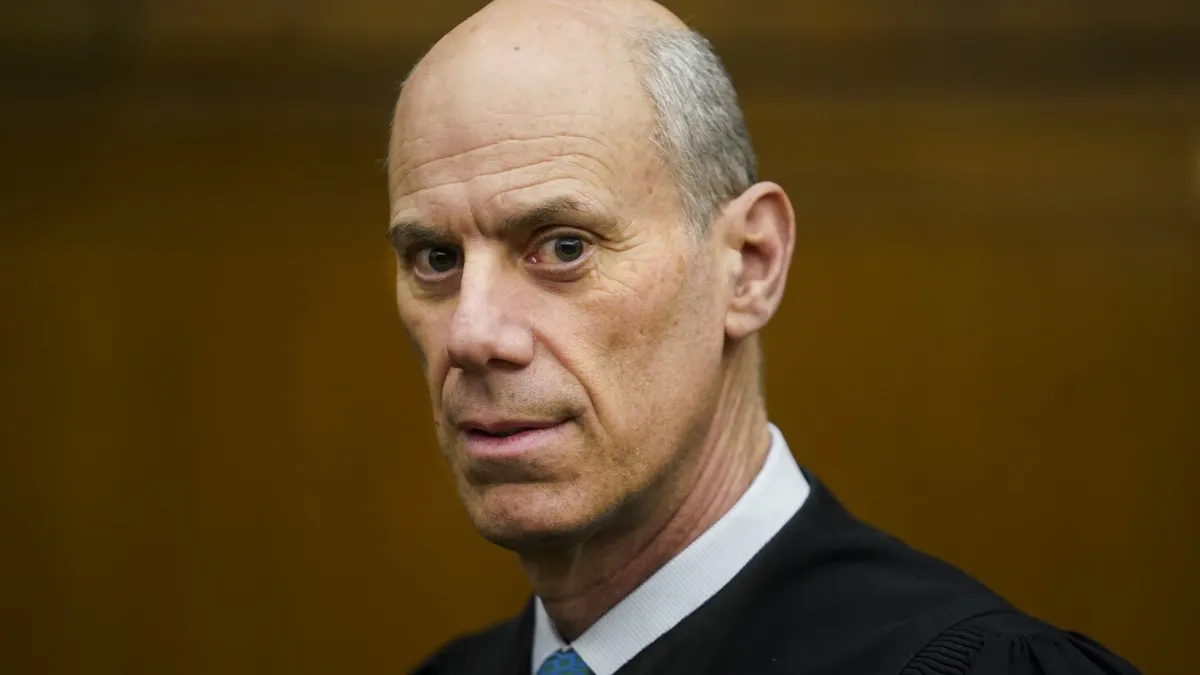
In a significant development regarding immigration policy, President Donald Trump expressed doubts about the impartiality of Chief Judge James Boasberg, who recently put a halt to the administration's plans to deport Venezuelan immigrants to El Salvador. This criticism came just hours before the Trump administration prepared to appeal the judge's order in a higher court.
Shortly after midnight, Trump took to social media, calling for Judge Boasberg to be disbarred. His post included a shared article highlighting Boasberg's attendance at a legal conference that allegedly featured speakers with anti-Trump sentiments. Despite the backlash, Judge Boasberg declined to retract his original ruling, which requires that immigrants facing deportation be given a chance to contest their classifications as alleged members of the Tren de Aragua gang.
In his decision, Judge Boasberg emphasized the importance of allowing individuals to challenge their deportation status, stating there is a “strong public interest in preventing the mistaken deportation of people based on categories they have no right to challenge.” He further asserted that the public has a vital interest in ensuring that the government adheres to the law.
However, Boasberg did not immediately clarify what form the challenge to his ruling should take. The Trump administration had already transferred hundreds of Venezuelan immigrants to El Salvador under an 18th-century wartime law that had not been utilized since World War II. On March 15, as flights were en route to El Salvador, Boasberg issued a temporary ban on deportations, ordering the planes to return to the U.S.—a directive that was not followed.
On Monday afternoon, a three-judge panel from the U.S. Court of Appeals for the District of Columbia Circuit is set to hear arguments from attorneys representing both sides. The Alien Enemies Act allows noncitizens to be deported without the chance to present their cases before an immigration or federal court judge. In a proclamation, Trump labeled the Tren de Aragua gang an invading force, justifying his administration's actions.
Government attorneys have argued that Judge Boasberg's ruling represents an “unprecedented intrusion” on the executive branch's authority to remove individuals deemed a threat to national security. They contend that the President’s actions are lawful and rooted in a historical context of using wartime powers against foreign-affiliated organizations, which should not be subject to judicial scrutiny.
In contrast, civil rights attorneys who have filed lawsuits to halt the deportations warned that the government’s stance poses alarming implications. They argued, “If the President can designate any group as enemy aliens under the Act, and that designation is unreviewable, then there is no limit on who can be sent to a Salvadoran prison, or any limit on how long they will remain there.”
During a prior hearing, Judge Boasberg expressed his intention to investigate whether the government had disregarded his verbal instructions to return at least two planes. The Justice Department countered that only the written order needed to be observed, asserting that it could not be applied to flights that had already departed from the U.S.
This unfolding situation highlights the ongoing tension between the Trump administration's immigration policies and the judicial system's oversight, raising crucial questions about the balance of power in matters of national security and human rights.